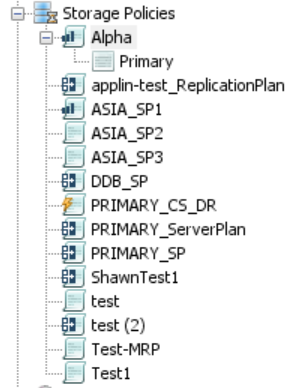So another question.
Regarding scheduling backups. So our environment which is mostly windows servers and a few linux servers and 1 MsSQL. Is following an accurate assumption:
If I want to create a new client group, example - “Windows Server Agents” and then associate all of our Windows servers to this group this approach seems much cleaner way to create bkup policy then creating a seperate backup schedule for each windows server individually.
What is recommened?
Also if I was to create this group client Windows server bkup schedule I notice it doesnt let me chosse what drives I want to backup and the system state option. I only see these options if I set up a backup schedule for an idividual client as there is a “content” tab where I can select aLL local drives or browse etc..and then there is also a check box for the “system State” Does the client group bkup schedule automatically bkup all local drives - C:\ drive and if there happens to be a D:\ it will back that up as well etc…?? Also will it backup the System State options.??
As Always thank you very much!!
BC







